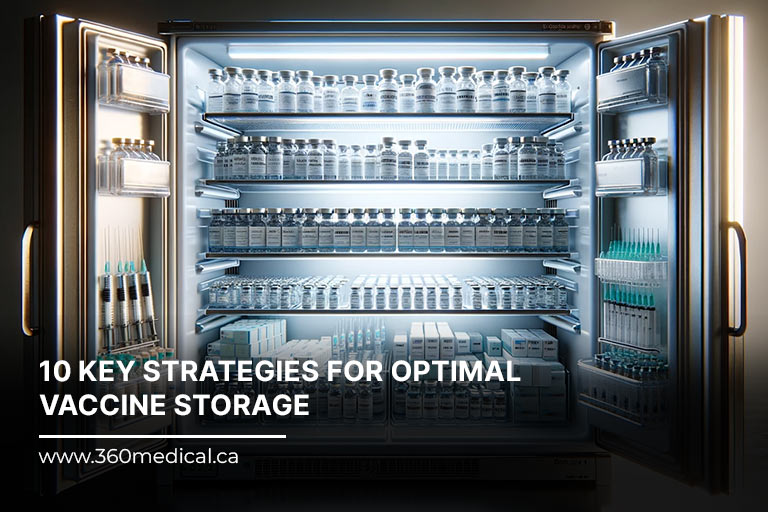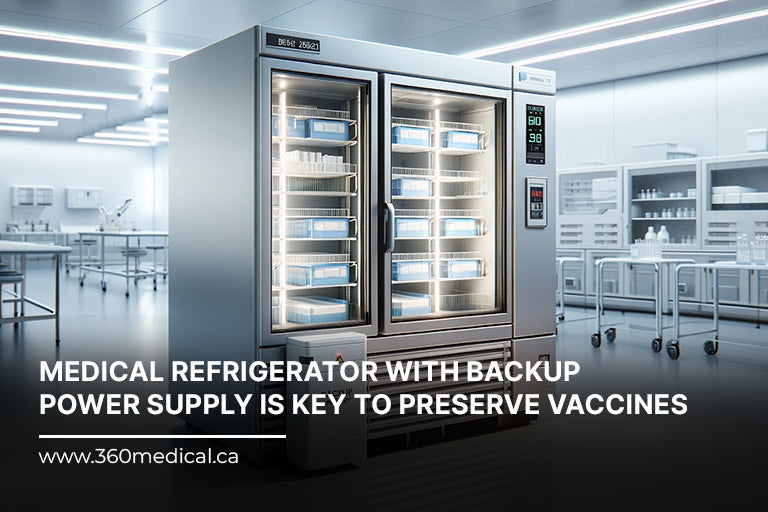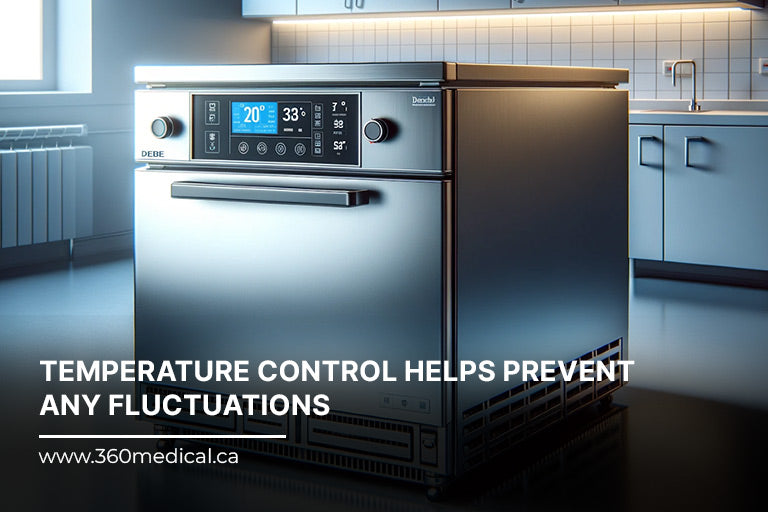10 Key Strategies for Optimal Vaccine Storage

Vaccines have long been hailed as one of the most significant achievements in modern medicine, pivotal in preventing numerous infectious diseases that have plagued humanity for centuries. From polio and measles to influenza and COVID-19, vaccines have been instrumental in curbing the spread of contagious illnesses and saving countless lives. However, the efficacy of vaccines hinges not only on their formulation and administration but also on their proper storage and handling. Inadequate storage conditions can compromise the potency of vaccines, rendering them ineffective and jeopardizing public health efforts.
Unlike everyday refrigerators that primarily maintain a uniform temperature for food preservation, vaccine refrigerators are designed to cater to a much narrower temperature range. Any fluctuation in temperature and other environmental conditions can affect their potency. Understanding the unique requirements of vaccine storage is paramount to preventing wastage, maintaining public trust, and safeguarding communities against preventable diseases.
Key Factors in Vaccine Storage

Several key factors come into play when it comes to vaccine storage, and understanding and addressing these factors are vital for healthcare providers, pharmacists, and public health professionals.
- Temperature Control
Maintaining a consistent and appropriate temperature is the most critical factor in vaccine storage. Different vaccines require different storage temperatures, typically either refrigerated (2°C to 8°C) or frozen (-15°C to -50°C). Fluctuations outside these ranges can significantly reduce a vaccine's effectiveness or even render it useless.
- Humidity Control
While not as critical as temperature, controlling humidity within vaccine storage units is essential. Excessive moisture can lead to condensation and potentially damage vaccine packaging, leading to contamination or degradation of the vaccine.
- Stable Power Supply
A reliable and consistent power supply is essential for maintaining proper storage conditions. Power outages or fluctuations can cause temperatures in storage units to vary, jeopardizing vaccine integrity. Backup power solutions, such as generators or uninterruptible power supplies (UPS), are important in areas with unstable power grids.
- Storage Equipment Quality
The quality of refrigeration and freezing equipment is vital. Medical-grade refrigerators and freezers designed specifically for vaccine storage are preferred, as they maintain more consistent temperatures compared to household units. These specialized units often include features like temperature alarms and backup cooling systems.
- Organization and Space Management
Proper organization within the storage unit is necessary to ensure adequate air circulation and prevent overstocking. Vaccines should be spaced out and stored in their original packaging, and the layout should facilitate easy access and rotation based on expiry dates. This organization prevents "cold spots" or "hot spots" within the unit and ensures that all vaccines are stored under optimal conditions.
Best Practices of Vaccine Storage

Adhering to guidelines for optimal vaccine storage is paramount to safeguard the potency and reliability of vaccines. Let's examine the fundamental rules and recommendations that medical professionals and institutions must adhere to in order to maintain the efficacy of these life-saving instruments.
- Consistent Temperature Monitoring
The most critical aspect of vaccine storage is vaccine storage temperature control. Vaccines must be stored within a specific temperature range per the manufacturer's guidelines. Using digital data loggers, continuous temperature monitoring ensures any fluctuations are promptly detected and addressed. This practice minimizes the risk of temperature excursions, which can degrade vaccine efficacy.
- Use of Medical Refrigerators for Vaccines
Standard domestic refrigerators are not suitable for vaccine storage due to their temperature variability. Medical refrigerators for vaccines are designed to maintain a consistent temperature. These specialized refrigerators provide the necessary stability and uniformity in temperature, which is critical for vaccine preservation.
- Regular Equipment Maintenance
Regular maintenance is essential to guarantee the reliability of vaccine storage equipment. This includes cleaning, defrosting, and servicing of refrigerators and freezers. Preventative maintenance prevents unexpected failures and ensures the equipment operates within the required temperature range, safeguarding vaccine integrity.
- Organized Storage System
An organized vaccine storage strategy and system enhances efficiency and minimizes handling errors. Vaccines should be stored in their original packaging and grouped by type and expiration date. Clear labelling and separation of vaccines reduce the risk of administration errors and aid in stock management.
- Avoiding Overstocking
Overstocking refrigerators can impede air circulation, leading to uneven temperature distribution within the storage unit. It's vital to stock only the quantity of vaccines necessary for the immediate future. This practice not only ensures optimal storage conditions but also reduces wastage due to expiration. It also simplifies the monitoring and rotation of vaccines, allowing for better control over vaccine quality and minimizing the chances of temperature deviations within the storage unit.
- Emergency Preparedness
Establishing an emergency plan for power failures or equipment malfunctions is crucial. This includes having backup power sources and knowing how to safely transfer vaccines to alternate storage if needed. A well-prepared plan ensures vaccine preservation during unforeseen circumstances.
- Proper Handling and Transportation
When vaccines are transported, they must be kept at the required temperature. Using validated coolers and temperature monitors during transit ensures vaccines remain within the specified temperature range, maintaining their effectiveness upon arrival.
- Regular Training for Staff
Staff handling vaccines should receive regular training on proper vaccine storage management techniques. This includes understanding temperature requirements, handling protocols, and emergency procedures. Well-trained staff are key to preventing human error, which can compromise vaccine quality.
- Documentation and Record Keeping
Maintaining accurate records of temperature logs, equipment maintenance, and vaccine inventories is essential. These records provide a historical account of storage conditions and can be vital in audits or investigations of storage practices.
- Compliance with Guidelines
Adhering to national and international guidelines for vaccine storage is imperative. These guidelines provide a framework for best practices and ensure uniformity in storage standards. Regular updates on these guidelines should be sought and implemented to keep abreast of new developments in vaccine storage.
Proper storage of vaccines is a multifaceted process requiring attention to detail and adherence to best practices. By incorporating these strategies, healthcare facilities can ensure the potency of vaccines and contributing to the success of vaccination programs.
For more information on medical refrigerators for vaccines and expert advice on vaccine storage, contact 360 Degree Medical at 1-800-209-2082. Their team of professionals can guide you in selecting the right equipment to meet your specific needs, ensuring your vaccines are stored under optimal conditions.





Leave a comment